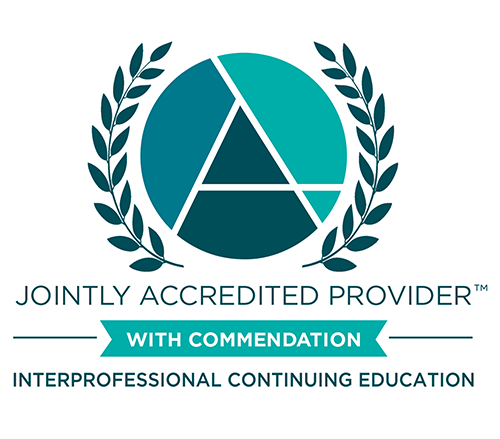Mindful Parenting During the Pandemic
 | There are various challenges and concerns families and caretakers may express during times of crisis. This course dives into the neuroscience behind mindfulness, discusses mindful parenting and introduces mindfulness activities that can be practiced by patients, parents and the healthcare team providing care during crises such as a pandemic. |
Learning Objectives
As a result of this educational activity, learners will be able to:
- Learn the neuroscience of mindfulness meditation.
- Learn mindful practices to focus attention and be in the moment.
- Learn strategies to stay resilient and cope effectively with stress.
- Learn how to strengthen a positive outlook during challenges.
 Shilagh Mirgain, PhD, is a Distinguished Psychologist in the Department of Orthopedics and Rehabilitation, University of Wisconsin School of Medicine and Public Health. She received her PhD at the University of Illinois at Urbana-Champaign in Clinical and Community Psychology, completed her clinical internship at the University of Wisconsin, Department of Psychiatry, and her postdoctoral fellowship at Stanford University, Department of Psychiatry. Dr. Mirgain's clinical interventions include cognitive-behavioral approaches to management of health and secondary psychological issues, biofeedback, hypnosis, guided imagery, relaxation training, and mindfulness cognitive therapy for stress reduction. As an integral part of the Mindfulness Meditation for Health research grant project and the NSF funded Mindful Engineer research project, she has led mindfulness meditation interventions, as well as developed a mindfulness manual for use with chronic pain populations and engineering graduate students.
Shilagh Mirgain, PhD, is a Distinguished Psychologist in the Department of Orthopedics and Rehabilitation, University of Wisconsin School of Medicine and Public Health. She received her PhD at the University of Illinois at Urbana-Champaign in Clinical and Community Psychology, completed her clinical internship at the University of Wisconsin, Department of Psychiatry, and her postdoctoral fellowship at Stanford University, Department of Psychiatry. Dr. Mirgain's clinical interventions include cognitive-behavioral approaches to management of health and secondary psychological issues, biofeedback, hypnosis, guided imagery, relaxation training, and mindfulness cognitive therapy for stress reduction. As an integral part of the Mindfulness Meditation for Health research grant project and the NSF funded Mindful Engineer research project, she has led mindfulness meditation interventions, as well as developed a mindfulness manual for use with chronic pain populations and engineering graduate students.
FACULTY DISCLOSURE
It is the policy of the University of Wisconsin–Madison ICEP that the faculty, authors, planners, and other persons who may influence content of this CE activity disclose all relevant financial relationships with commercial interests* in order to allow CE staff to identify and resolve any potential conflicts of interest. Faculty must also disclose any planned discussions of unlabeled/unapproved uses of drugs or devices during the educational activity.
* The ACCME defines a commercial interest as any entity producing, marketing, re-selling, or distributing health care goods or services consumed by, or used on, patients. The ACCME does not consider providers of clinical service directly to patients to be commercial interests.
Disclosure of Unlabeled Use: The University of Wisconsin–Madison ICEP advises the participant that this continuing medical education activity does NOT contain reference(s) to unlabeled or unapproved uses of drugs or devices
For this educational activity all conflicts of interests have been resolved and detailed disclosures are listed below:
Accreditation
Accreditation Statement
 | In support of improving patient care, the University of Wisconsin–Madison ICEP is jointly accredited by the Accreditation Council for Continuing Medical Education (ACCME), the Accreditation Council for Pharmacy Education (ACPE), and the American Nurses Credentialing Center (ANCC) to provide continuing education for the healthcare team. |
Credit Designation Statements
American Board of Pediatrics
Successful completion of this CME activity, which included participation in the activity, with individual assessment of the participant and feedback to the participant, enables the participant to earn 1.0 MOC points in the American Board of Pediatrics’ (ABP) Maintenance of Certification (MOC) program. It is the CME activity provider’s responsibility to submit participant completion information to ACCME for the purpose of granting ABP MOC credit.
American Medical Association (AMA)
The University of Wisconsin–Madison ICEP designates this live activity for a maximum of 1 AMA PRA Category 1 Credit™. Physicians should claim only the credit commensurate with the extent of their participation in the activity.
American Nurses Credentialing Center (ANCC)
The University of Wisconsin–Madison ICEP designates this live activity for a maximum of 1 ANCC contact hour.
Continuing Education Units
The University of Wisconsin–Madison ICEP, as a member of the University Professional & Continuing Education Association (UPCEA), authorizes this program for 0.1 continuing education units (CEUs) or 1 hour.
Available Credit
- 1.00 MOC: ABP Lifelong Learning Points (Part II)
- 1.00 AMA PRA Category 1 Credit™
- 1.00 ANCC Contact Hours
- 1.00 University of Wisconsin–Madison Continuing Education Hours
- 1.00 Approved for AMA PRA Category 1 Credit™
Required Hardware/software
Computer, tablet, or other mobile device with sound.
Free, current version of Edge, Firefox, Safari, or Chrome. Some older browsers and Internet Explorer could produce error messages or not display the content correctly.
Free, current version of Adobe Acrobat Reader or other .pdf reader.

 Facebook
Facebook X
X LinkedIn
LinkedIn Forward
Forward